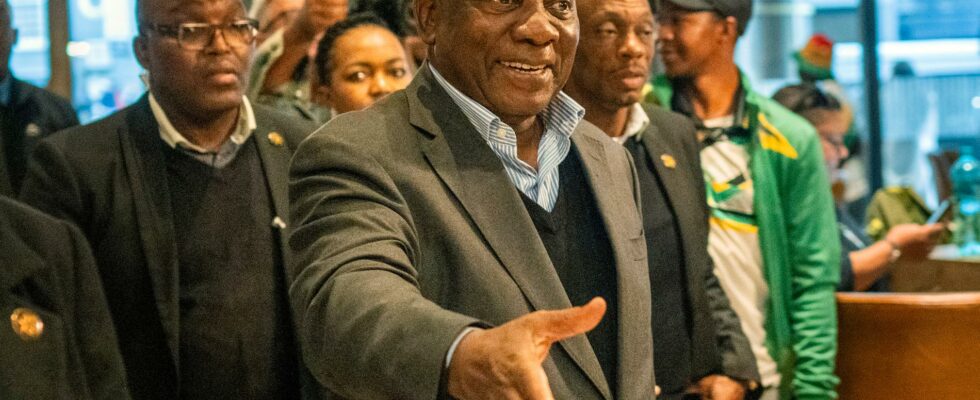unsaveSave
expand-left
full screen South Africa’s incumbent President Cyril Ramaphosa ahead of an ANC meeting in Cape Town this week. Photo: Jerome Delay/AP/TT
No agreement has yet been reached in the search for a new government in South Africa, the ANC announces according to the BBC.
The announcement comes before today’s deadline since the state-bearing party made a disastrous election two weeks ago.
For the first time in 30 years, South Africa today elects a president in a vote where the outcome is not just a mere formality.
However, incumbent President Cyril Ramaphosa is expected to remain in office. He will thus be responsible for forming the country’s first coalition government since the first democratic elections in 1994.
The arch-rival Democratic Alliance (DA) and Zulu nationalist Inkhata Freedom party (IFP) are believed to be part of the government together with a number of smaller parties. In this way, extreme parties are excluded from government power – including the scandal-ridden ex-president Jacob Zuma’s newly formed party uMkhonto we Sizwe (MK).
– Last night at two o’clock we thought we had an agreement ready, but this morning some problems arose, says Helen Zille, the DA’s representative in the negotiations in Cape Town, to the South African television company SABC on Friday morning.
– One paragraph remains. I hope we will finish.
On Thursday evening, the radical left party Economic Freedom Fighters (EFF) announced during a press conference that the party refuses to enter into a coalition together with the DA.
Friday’s session is expected to take several hours. First, hundreds of members of parliament will be sworn in, and then a speaker will be chosen to lead the vote on the presidency.
THE FACTS The election in South Africa
On Wednesday 29 May, elections were held in South Africa’s nine provinces. It was the seventh democratic election held since the fall of apartheid.
Voters voted for parties for a proportional number of seats in the 400-seat parliament. These in turn elect a president on June 14.
Country father Nelson Mandela’s African National Congress (ANC) had a disastrous election and received around 40 percent of the vote. The party thus lost its 30-year-long parliamentary majority.
The main opposition party, the Democratic Alliance (DA), got 22 percent and former president Jacob Zuma’s MK party came third with 14.6 percent.
Before this year’s election, the ANC had won between 60 and 70 percent in all elections since 1994.
The turnout, around 59 percent, is said to be the lowest in South Africa’s history.
Read more
